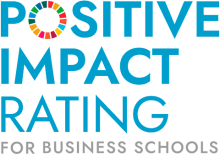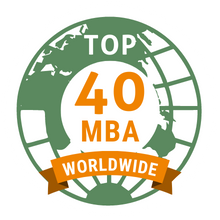
We contribute to the field of sustainability science. We translate research into our programmes and activities.
At the Sustainability Hub, EADA’s academic team design and carry out research projects on the role of companies and their stakeholders in tackling the climate emergency and social challenges.
Research is carried out transversally across various areas such as Strategy, Leadership, Marketing and Supply Chain by members of our research team who disseminate the results, write academic articles and develop case studies and learning material. This is all transferred into the EADA programmes that specialise in sustainability, enabling our participants to adopt a model of sustainable and purpose-driven leadership.
The impact of this process is not only academic: it also promotes actions, in collaboration with EADA’s partners, to promote sustainability among participants, the Alumni community, team and environment.
The Sustainability Hub and EADA’s multiplier network of students, Alumni, faculty team and partners, among others, enable the transformation of sustainability research into real impact.
The Sustainability Hub


Principles of teaching and research for sustainable impact at EADA
It was over 8 years ago that we decided that sustainability would become an axis on which to base all our training and research, as part of our activity.
We understand sustainability in terms of the environment, society and economy, referring to actions that meet current needs while ensuring a balance between economic growth, environmental protection and social well-being, without compromising the future of upcoming generations to meet their own needs.
Sustainability has therefore become one of the pillars of our institution, alongside leadership and innovation, and we have embraced its research, training and impact projects. Our work in sustainability is ongoing as it continues to form a key aspect of our programmes, main research projects, activities and initiatives, such as events, collaborations, and Community actions, among others.
Sustainability is an axis of our mission
In 2017, we became pioneers in Europe for specialised training in Sustainability for the business world, when we launched the Master in Sustainable Business and Innovation. This programme has since quadrupled its number of participants and, as a result, we have designed other specialised training programmes in sustainability in order to provide training to professionals from other sectors. We have a variety of programme types (Master’s, Postgraduate, short-term courses, company training, etc.), different formats (face-to-face, blended and online), languages (Spanish and English), which adapt to the needs and objectives of each person who is interested in sustainability in the business environment.
Sustainability also forms part of our training programmes in other business areas (management, marketing, human resources, finance, operations, pharmaceuticals, etc.) that offer subjects, tracks and/or activities to promote sustainability among participants using practical and dynamic methodologies.
In addition, EADA chooses to take part in new ratings and rankings that analyse our impact as a business school for the world, such as the Positive Impact Rating and Better World Ranking MBA: both of which have ranked EADA in excellent positions:

Positive Impact Rating For Business Schools
EADA is among the Transforming Schools (level 4) FOR The World. Positive Impact Rating For Business Schools - June 2023

Better World Ranking MBA de Corporate Knights
EADA is ranked at number #23 worldwide and #1 in Spain by the Corporate Knights ‘Better World Ranking MBA’, as a result of integrating sustainable development into its MBA programmes, faculty research on sustainability issues and the gender and ethnical diversity of its faculty.
2024 Corporate Knights Ranking


How do we incorporate sustainability into our programmes?
We work to ensure that all our programmes incorporate sustainability. Some of our leading programmes such as the International MBA, the EADA-SKEMA Global BBA, the General Management Programme (PDG) and the Master in Operations and Supply Chain Management already include subjects or tracks on business sustainability to enable participants to gain the knowledge and skills they need to become the sustainable, responsible and purpose-driven professionals and leaders that today’s market requires.
Our methodology and training programmes also include sustainable leadership.
Sustainable leadership:
Sustainable leadership, which in addition to enhancing professional competencies and abilities, aims to ensure that participants base their values and practices on human sustainability, society, the environment, the economy, ethics and equal opportunities.
This leadership model builds purpose through individual work that matches a participant’s purpose with the company’s strategy. It enables them to understand and discover themselves on a personal level, identify their purpose and, from there, move towards new ways of relating to stakeholders to achieve it.
We firmly believe in the multiplier effect and the impact that current and future business leaders can create through this type of leadership, in both existing profit-driven companies and future purpose-driven organisations.

Axes for sustainable leadership
The sustainable leadership model at EADA is based on 8 axes, 4 related to people and 4 to impact.
People
Which concepts, models and theories can we apply to make sense of a world which seems fragile, nonlinear and often incomprehensible?
What capacity do we have to establish connections, complicity, collaborations and partnerships with stakeholders?
Dealing with the complexity of opportunities requires leaders to coordinate different perspectives and interests and mobilise them to achieve the purpose.
Discovering the link between cause and effect in the new millennium requires us to reimagine and understand the world from a new perspective.
Impact
The ability to create solutions and approaches that decode complexity and facilitate engagement is a critical asset in all projects.
through innovation and sustainability, two elements that are essential if we wish to generate solutions to social challenges.
with more motivated employees.
Respond to the needs of the different stakeholders through responsibility and transparency.
